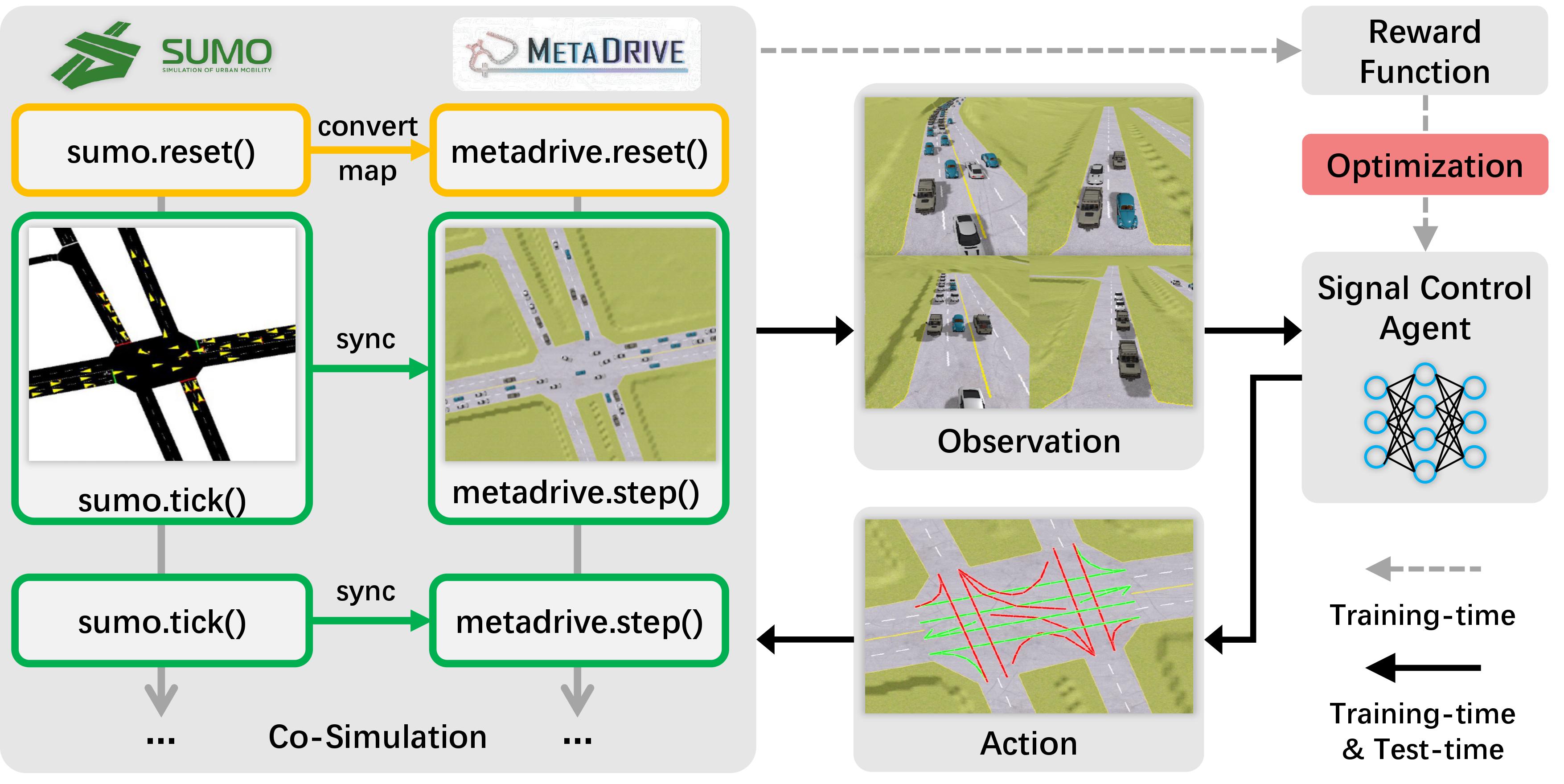
Traffic signal control (TSC) is crucial for reducing traffic congestion that leads to smoother traffic flow, reduced idling time, and mitigated CO2 emissions. In this study, we explore the computer vision approach for TSC that modulates on-road traffic flows through visual observation. Unlike traditional feature-based approaches, vision-based methods depend much less on heuristics and predefined features, bringing promising potentials for end-to-end learning and optimization of traffic signals. Thus, we introduce a Simple traffic simulation framework called TrafficDojo towards vision-based TSC and its benchmarking by integrating the microscopic traffic flow provided in SUMO into the driving simulator MetaDrive. This proposed framework offers a versatile traffic environment for in-depth analysis and comprehensive evaluation of traffic light controllers across diverse traffic conditions and scenarios. We establish and compare baseline algorithms including both traditional and Reinforecment Learning (RL) approaches. This work sheds insights into the design and development of vision-based TSC approaches and open up new research opportunities
